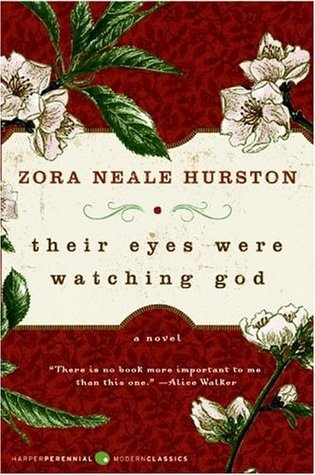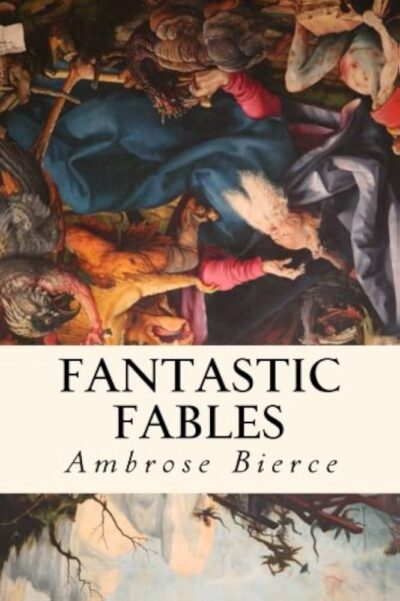404 Results with the "Literary" genre
Adventure Fiction (1164)
Biography (435)
Business & Finance (1)
Children's Literature (124)
Comics (6)
Culture (51)
Drama (123)
Dystopian (29)
Fable (86)
Fantasy (1132)
Fantasy (203)
Fiction (1010)
Finance (1)
Gothic Fiction (12)
Historical Fiction (615)
History (122)
Horror (56)
Lifestyle (36)
Literary Fiction (207)
Memoir (113)
Mystery (422)
Non-fiction (87)
Novel (549)
Paranormal Fiction (96)
Philosophical (182)
Philosophy (45)
Poetry (249)
Political Fiction (14)
Politics (42)
Practical (32)
Psychological (4)
Psychological Thriller (108)
Relationship (6)
Romance Novel (716)
Romantic Melodrama (14)
Satire (91)
Science (46)
Science Fiction (345)
Self-help (68)
Society (65)
Society (2)
Spiritual Growth (1)
story (2)
Thriller (704)
True Crime (56)
view (11)
Women's Fiction (2)
Young Adult (233)
-
Chapter
Agafya
 Agafya opens with a tranquil summer setting in the S. district, where the narrator finds refuge from daily concerns in the kitchen gardens of Dubovo. These gardens, brimming with ripened greens and moonlight, become a sanctuary for idle conversations and quiet meals with Savka, the village watchman. Savka's life is marked by an unusual combination of physical vitality and absolute indolence. Though capable of hard labor and possessing land, he chooses instead to drift through life, relying on the charity…
Agafya opens with a tranquil summer setting in the S. district, where the narrator finds refuge from daily concerns in the kitchen gardens of Dubovo. These gardens, brimming with ripened greens and moonlight, become a sanctuary for idle conversations and quiet meals with Savka, the village watchman. Savka's life is marked by an unusual combination of physical vitality and absolute indolence. Though capable of hard labor and possessing land, he chooses instead to drift through life, relying on the charity…-
165.6 K • Ongoing
-
-
Chapter
Afterword
 Afterword In the afterword to Their Eyes Were Watching God, Henry Louis Gates Jr. reflects on the literary legacy of Zora Neale Hurston, whose profound influence was not fully appreciated during her lifetime. A graduate of Barnard College, Hurston authored several works, including Jonah's Gourd Vine, Mules and Men, and Seraph on the Suwanee, but her refusal to conform to the expectations of mainstream literature contributed to her marginalization. Hurston's complex identity, resisting simple labels such as…
Afterword In the afterword to Their Eyes Were Watching God, Henry Louis Gates Jr. reflects on the literary legacy of Zora Neale Hurston, whose profound influence was not fully appreciated during her lifetime. A graduate of Barnard College, Hurston authored several works, including Jonah's Gourd Vine, Mules and Men, and Seraph on the Suwanee, but her refusal to conform to the expectations of mainstream literature contributed to her marginalization. Hurston's complex identity, resisting simple labels such as…-
105.4 K • Ongoing
-
-
Chapter
Aesopus Emendatus
 Aesopus Emendatus offers a refreshing lens on the classic genre of moral storytelling. Rather than merely echoing Aesop’s traditional messages, it reconfigures them to suit more modern interpretations of human behavior. The tales still use talking animals, symbolic gestures, and sharp wit, but each twist is intentionally designed to push the reader into questioning what once seemed straightforward. For instance, the fable of “The Cat and the Youth” doesn't just affirm the futility of disguising…
Aesopus Emendatus offers a refreshing lens on the classic genre of moral storytelling. Rather than merely echoing Aesop’s traditional messages, it reconfigures them to suit more modern interpretations of human behavior. The tales still use talking animals, symbolic gestures, and sharp wit, but each twist is intentionally designed to push the reader into questioning what once seemed straightforward. For instance, the fable of “The Cat and the Youth” doesn't just affirm the futility of disguising…-
12.1 K • Ongoing
-
-
Chapter
Acknowledgments
 Acknowledgments is a heartfelt chapter in which the author expresses profound gratitude for the numerous individuals and organizations who played an integral role in bringing their work to fruition. The journey to publication is rarely a solo endeavor, and the author begins by recognizing Grove Atlantic, the publisher, as an incredibly fortunate partnership. They note the great privilege of being able to work with such a supportive and dedicated publisher. Special thanks are given to Morgan Entrekin, who…
Acknowledgments is a heartfelt chapter in which the author expresses profound gratitude for the numerous individuals and organizations who played an integral role in bringing their work to fruition. The journey to publication is rarely a solo endeavor, and the author begins by recognizing Grove Atlantic, the publisher, as an incredibly fortunate partnership. They note the great privilege of being able to work with such a supportive and dedicated publisher. Special thanks are given to Morgan Entrekin, who…-
148.3 K • Ongoing
-
-
Chapter
About the Author
 About the Author Zora Neale Hurston (1891–1960) was a groundbreaking writer, anthropologist, and folklorist whose work significantly impacted both American literature and cultural studies. Throughout her career, Hurston explored the intricacies of African American life and culture, combining both fictional narratives and factual anthropological studies. She is best known for her profound exploration of Black identity, particularly in her acclaimed works such as Jonah's Gourd Vine, Mules and Men, Seraph…
About the Author Zora Neale Hurston (1891–1960) was a groundbreaking writer, anthropologist, and folklorist whose work significantly impacted both American literature and cultural studies. Throughout her career, Hurston explored the intricacies of African American life and culture, combining both fictional narratives and factual anthropological studies. She is best known for her profound exploration of Black identity, particularly in her acclaimed works such as Jonah's Gourd Vine, Mules and Men, Seraph…-
105.4 K • Ongoing
-
-
Chapter
A Tweedside Sketch
 A Tweedside Sketch begins with an unvarnished admission of the narrator’s long-standing flaw—carelessness. It’s not born of laziness, but of a restless temperament that overlooks the small things. While such oversight might seem harmless in the moment, it builds a habit that eventually touches every part of life, even something as seemingly peaceful as fishing. As the narrator prepares for a salmon-fishing trip on the River Tweed, this trait resurfaces, leading to yet another avoidable misadventure.…
A Tweedside Sketch begins with an unvarnished admission of the narrator’s long-standing flaw—carelessness. It’s not born of laziness, but of a restless temperament that overlooks the small things. While such oversight might seem harmless in the moment, it builds a habit that eventually touches every part of life, even something as seemingly peaceful as fishing. As the narrator prepares for a salmon-fishing trip on the River Tweed, this trait resurfaces, leading to yet another avoidable misadventure.…-
49.3 K • Ongoing
-
-
Chapter
A Malefactor
 A Malefactor opens with a quiet, almost comical tension as Denis Grigoryev stands before a magistrate, unaware that his everyday action has landed him in legal trouble. Thin, poorly dressed, and confused by the setting, Denis is a figure straight from the Russian countryside—someone who sees the world through the lens of survival rather than law. His crime? Removing a nut from a railway track to use as a fishing weight. To Denis, this is no more criminal than picking a stone from the roadside. His…
A Malefactor opens with a quiet, almost comical tension as Denis Grigoryev stands before a magistrate, unaware that his everyday action has landed him in legal trouble. Thin, poorly dressed, and confused by the setting, Denis is a figure straight from the Russian countryside—someone who sees the world through the lens of survival rather than law. His crime? Removing a nut from a railway track to use as a fishing weight. To Denis, this is no more criminal than picking a stone from the roadside. His…-
165.6 K • Ongoing
-
-
Chapter
A Friend of Keats
 A Friend of Keats introduces us to John Hamilton Reynolds, a poet often overshadowed by his illustrious peers but worthy of renewed attention. The narrative frames Reynolds not as a distant literary relic, but as a vibrant participant in the Romantic era’s creative pulse—someone whose work, though now faded in public memory, once moved among the era's poetic titans. Reynolds possessed not only literary grace but also a fascination with the grit of life, evidenced in his passion for boxing and its…
A Friend of Keats introduces us to John Hamilton Reynolds, a poet often overshadowed by his illustrious peers but worthy of renewed attention. The narrative frames Reynolds not as a distant literary relic, but as a vibrant participant in the Romantic era’s creative pulse—someone whose work, though now faded in public memory, once moved among the era's poetic titans. Reynolds possessed not only literary grace but also a fascination with the grit of life, evidenced in his passion for boxing and its…-
72.7 K • Ongoing
-
-
Chapter
A Church You Could Bear
 A Church You Could Bear, begins with Lark and the narrator, Rainy, slipping out of the house early in the morning, leaving Kellan upstairs, lost in his own world. Lark, ever thoughtful, gathers an armful of lilacs and a maple bough, creating a beautiful arrangement to accompany their trip to Labrino’s. As the morning light breaks through, Lark reassures Rainy, comforting him with the reminder that listening to a friend, even when burdened with feelings of failure, is an act of true friendship. Together,…
A Church You Could Bear, begins with Lark and the narrator, Rainy, slipping out of the house early in the morning, leaving Kellan upstairs, lost in his own world. Lark, ever thoughtful, gathers an armful of lilacs and a maple bough, creating a beautiful arrangement to accompany their trip to Labrino’s. As the morning light breaks through, Lark reassures Rainy, comforting him with the reminder that listening to a friend, even when burdened with feelings of failure, is an act of true friendship. Together,…-
148.3 K • Ongoing
-
- Previous 1 … 36 37 38 … 41 Next

